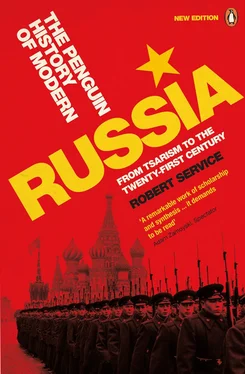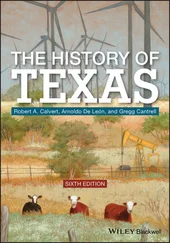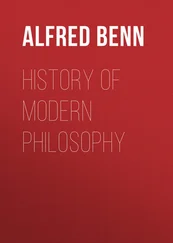K. Sword, Deportation and Exile. Poles in the Soviet Union, 1939–1948 (London, 1994)
Y. Taniuchi, ‘Decision-Making on the Urals-Siberian Method’ in J. Cooper et al . (eds), Soviet History, 1917–1953
W. Taubman, Khrushchev: The Man and His Era (London, 2003)
R. Taylor, The Politics of the Soviet Cinema, 1917–1929 (Cambridge, 1979)
D. Thorniley, The Rise and Fall of the Soviet Rural Communist Party, 1927–1939 (London, 1988)
N. S. Timasheff, The Great Retreat. The Growth and Decline of Communism in Russia (New York, 1946)
V. A. Tishkov, ‘Assembleya natsii ili soyuznyi parlament?’, Sovetskaya etnografiya , no. 3 (1990)
W. J. Tompson, Khrushchev: A Political Life (London, 1995)
R. C. Tucker, Stalin in Power, The Revolution from Above, 1928–1941 (London, 1990)
A. F. Upton, The Finnish Revolution, 1917–1918 (Minneapolis, MN, 1980)
M. Urban, The Rebirth of Politics in Russia (New York, 1997)
R. O. G. Urch, The Rabbit King of Siberia (London, 1939)
B. A. Viktorov, ‘Geroi iz 37-go’, Komsomol’skaya Pravda (21 August 1988)
L. Viola, Peasant Rebels under Stalin: Collectivization and the Culture of Peasant Resistance (New York, 1996)
D. A. Volkogonov, Lenin: politicheskii portret , vols 1–2 (Moscow, 1994)
D. A. Volkogonov, Stalin: Trimf i tragediya , vols 1–2 (Moscow, 1989)
O. Volobuev and S. Kuleshov, Ochishchenie. Istoriya i perestroika. Publitsisticheskie zametki (Moscow, 1989)
P. V. Volobuev, Ekonomicheskaya politika Vremennogo pravitel’stva (Moscow, 1962)
M. Voslensky, Nomenklatura: The Anatomy of the Soviet Ruling Class (London, 1984)
R. A. Wade, The Russian Search for Peace, February–October 1917 (Stanford, CA, 1969)
K. Waädekin, ‘Agriculture’ in M. McCauley (ed.), The Soviet Union under Gorbachev
P. Waldron, Between Two Revolutions: Stolypin and the Politics of Renewal in Russia (London, 1997)
P. Waldron, Governing Tsarist Russia (London, 2007)
P. Waldron, ‘States of Emergency: Autocracy and Extraordinary Legislation, 1881–1917’, Revolutionary Russia , no. 1 (1995)
M. Walker, The Cold War (London, 1994)
R. Walker, ‘Marxism-Leninism as Discourse: The Politics of the Empty Signifier and the Double Bind’, British Journal of Political Science , no. 2 (1989)
C. Ward, Russia’s Cotton Workers and the New Economic Policy. Shop-Floor Culture and State Policy, 1921–1929 (Cambridge, 1990)
S. and B. Webb, Soviet Communism: A New Civilisation? (London, 1935)
A. Weiner, ‘ Déjà Vu All Over Again: Prague Spring, Rumanian Summer and Soviet Autumn on the Soviet Western Frontier’, Contemporary European History , no. 2 (2006)
A. Weiner, ‘The Empires Pay a Visit: Gulag Returnees, East European Rebellions and Soviet Frontier Politics’, Journal of Modern History ( June 2006)
A. Weiner, Making Sense of War: The Second World War and the Fate of the Bolshevik Revolution (New Haven, CT, 2002)
M. Weitzman, ‘Industrial Production’ in A. Bergson and H. S. Levine (eds), The Soviet Economy: Towards the Year 2000
S. G. Wheatcroft, ‘The Balance of Grain Production and Utilisation in Russia before and during the Revolution’ (unpublished research paper, University of Birmingham, 1982)
S. G. Wheatcroft, ‘More Light on the Scale of Repression and Excess Mortality in the Soviet Union in the 1930s’, Soviet Studies , no. 2 (1990)
S. G. Wheatcroft and R. W. Davies, ‘Agriculture’ in R. W. Davies et al . (eds), The Economic Transformation of the Soviet Union
S. G. Wheatcroft and R. W. Davies, ‘Population’ in R. W. Davies et al . (eds), The Economic Transformation of the Soviet Union
S. G. Wheatcroft, R. W. Davies and J. Cooper, ‘Soviet Industrialisation Reconsidered: Some Preliminary Considerations about Economic Developments between 1926 and 1941’, Economic History Review , no. 2 (1986)
A. White, Democratisation in Russia under Gorbachev, 1985–1991: The Birth of a Voluntary Sector (London, 1999)
H. White, ‘The Provisional Government and the Problem of Power in the Provinces, March to October 1917’ (Oxford conference paper, January 1982)
H. White, ‘The Urban Middle Class’ in R. Service (ed.), Society and Politics in the Russian Revolution
S. White, After Gorbachev (Cambridge, 1993)
S. White, Britain and the Bolshevik Revolution, A Study in the Politics of Diplomacy, 1920–1924 (London, 1979)
S. White, Political Culture and Soviet Politics (London, 1979)
S. White, R. Rose and I. McAllister, How Russia Votes (London, 1997)
S. Whitefield, ‘Culture, Experience and State Identity: A Survey-Based Analysis of Russians, 1995–2003’ in S. Whitefield (ed.), Political Culture and Post-Communism
S. Whitefield, Industrial Power and the Soviet State (Oxford, 1993)
S. Whitefield, ‘Political Cleavages and Post-Communist Politics’, Annual Review of Political Science , no. 5 (2002)
S. Whitefield (ed.), Political Culture and Post-Communism (London, 2005)
S. Whitefield, ‘Social Responses to Reform in Russia’ in D. Lane (ed.), Russia in Transition (London, 1995)
A. Wilson, Virtual Politics: Faking Democracy in the Post-Soviet World (London, 2005)
R. Wortman, Scenarios of Power: Myth and Ceremony in Russian Monarchy , vol. 2, From Alexander II to the Abdication of Nicholas II (Princeton, NJ, 2000)
A. H. Wildman, The End of The Russian Imperial Army , vol. 1: The Old Army and the Soldiers’ Revolt, March–April 1917 (Princeton, NJ, 1980)
M. Wyman, Public Opinion in Post-Communist Russia (London, 1997)
V. E. Yesipov, ‘Povsednevnost’ ekonomiki i Rossii’ in B. A. Starkov (ed.), Rosssiiskaya povsednevnost’ 1921–1944 gg.: novye podkhody
E. Zaleski, Stalinist Planning for Economic Growth, 1933–1952 (London, 1980)
V. N. Zemskov, ‘Prinuditel’nye migratsii iz Pribaltiki v 1940–1950 gg’, Otechestvennye arkhivy , no. 1 (1993)
E. Yu. Zubkova, Obshchestvo i reformy, 1945–1964 (Moscow, 1993)
Abakumov, V.S., 340
Abkhazia, 560
Abkhazians, 424, 481, 560
abortion, 143, 422
Abuladze, Tengiz, 415, 450
Achalov, Vladislav, 524
acquiescence, social, 146, 243–4, 250;
see also apathy
Adenauer, Konrad, 353
administrators: courted by Bolsheviks, 95; working-class, 96–7; and state centralism, 98, 111; recruits to, 145; material rewards and privileges, 193, 320–21, 371, 410, 550; under Stalin, 236–7, 240–43; indoctrination, 324; discontent, 329; obstructiveness under Khrushchëv, 360; and Khrushchëv’s reforms, 370–71; attitude to work, 417; complaints against, 424–5; and Yeltsin’s reforms, 514–15; under privatization, 538–9; see also managers
Adzharians, 424
Adzhubei, Aleksei, 347
Afanasev, Yuri, 460, 473, 475
Afghanistan: USSR invades (1979), 411; Soviet withdrawal from, 443, 465, 469, 480; costs, 469; American-led invasion (2002), 555
Africa, 389
Aganbegyan, Abel, 450, 492
Agitprop Department (of Party Central Committee), 132
Agrarian Party, 530
agriculture: pre-World War I development, 5, 7; World War I production, 79, 181; backwardness, 91; predominance, 147; improves under NEP, 155; diversification in, 163; prices, 164, 173, 263–4; low output, 181; mechanization, 181–2; under Five-Year Plans, 194–5; post-World War II disputes over, 302, 320; Khrushchëv’s reforms, 320, 347, 349–51, 401–2; Brezhnev’s policy on, 380, 400–403; increased production under Brezhnev, 385; 1980 output, 401; ‘links’ system, 401–2; Gorbachëv proposes reforms, 440, 470–71; inefficiency, 467; and imports, 470; stimulated 535, 542, 551, 558; see also collectivization; harvests
Читать дальше












